Report identifies areas of the UK prospective for critical raw materials
Areas from the Highlands to south-west England have the right geology to be prospective for several critical raw materials such as lithium and graphite, according to a new report.
17/04/2023 By BGS Press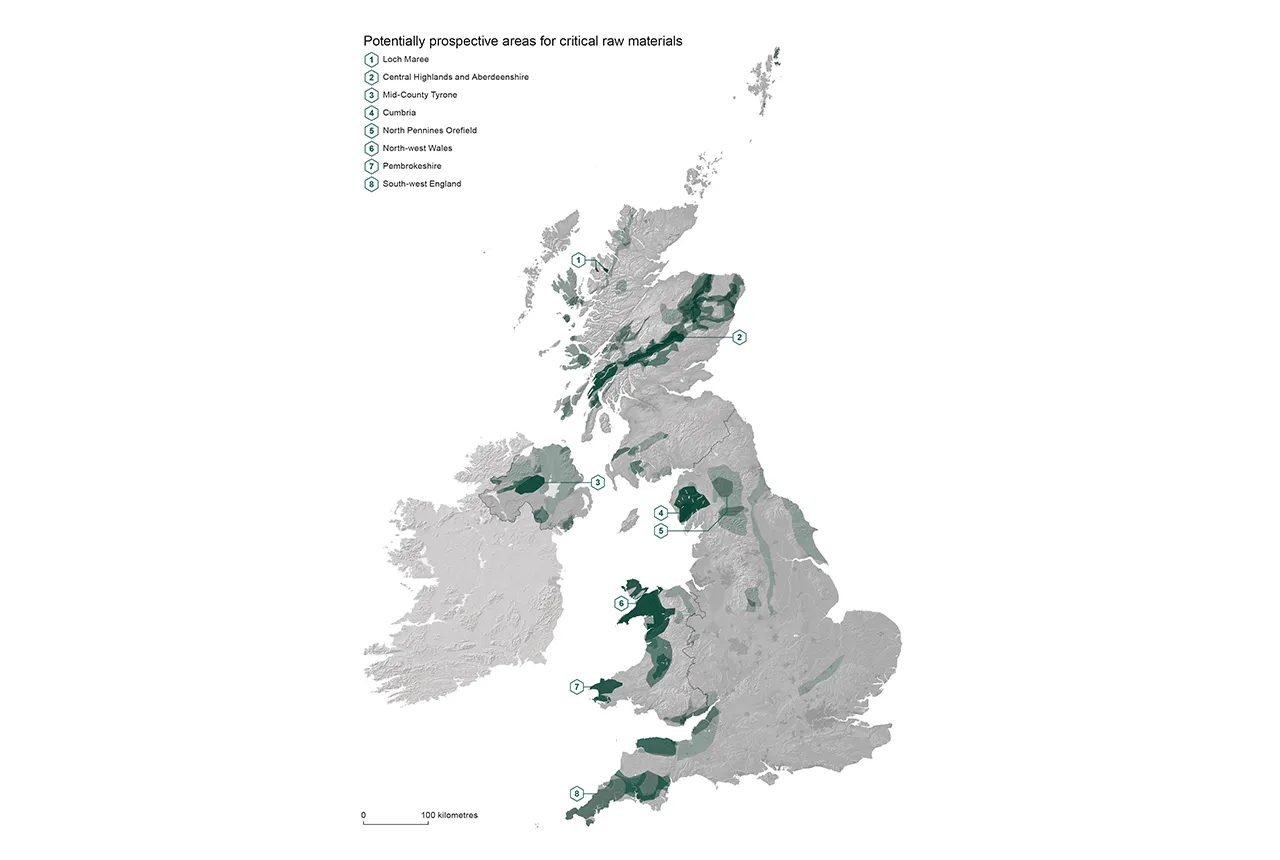
BGS has produced a report identifying areas of the UK prospective for critical raw materials for the Critical Minerals Intelligence Centre (CMIC). It is a national-scale assessment of the geological potential for critical raw materials (CRMs) in the UK. It represents one of the first steps in the UK Government’s critical minerals strategy, which aims to make the UK more resilient to disruption in critical mineral supply chains by accelerating the growth of domestic capability.
CRMs are those minerals that are economically important, like those needed to make the batteries and semiconductors that are vital for the clean energy transition, and that are at the greatest risk of supply chain disruption. The UK has 18 metals and minerals on its CRM list, with another six materials classed as having elevated criticality. These are almost exclusively obtained from mining and refining operations in other countries, although tungsten has been mined in the UK in recent years.
Critical raw materials in the UK
BGS has identified large parts of the country as prospective for CRMs. The key areas identified as ‘particularly worthy’ of more research are:
- an area around Loch Maree near Gairloch, Scotland
- parts of the central Highlands and Aberdeenshire, Scotland
- areas in mid-County Tyrone, Northern Ireland
- parts of Cumbria, England
- parts of the North Pennine orefield, England
- north-west Wales
- Pembrokeshire, Wales
- south-west England
Mining in the UK has a long history and many of the prospective areas have been mined before. For example, the Llŷn Peninsula of North Wales was mined for many years for manganese, which was originally important for steel making. In the future, the manganese deposits could be important for battery production.
Dr Kathryn Goodenough, co-author and BGS Principal Geologist.
BGS used a mineral systems approach, which relies on the concept that minerals of a certain type are formed by a combination of particular geological processes. The team identified the geological processes necessary to form CRM deposits and mapped these criteria against the UK’s available datasets, which include maps of the geology, soil and sediment geochemistry, and mineral occurrences.
‘Potentially prospective’ doesn’t mean inevitable mining
The report’s authors stress that identifying an area as prospective does not necessarily mean it will be targeted for exploration and mining.
Our report identifies the parts of the UK where the geological criteria have been met and therefore have the potential for deposits to occur. There are no guarantees.
The report focuses on the geological evidence and does not consider potential constraints on development, for example where there are areas of outstanding beauty, villages and towns, or other environmental considerations.
Much more research is required and, if prospectors find evidence of commercially viable CRM deposits, they will have to go through the well-established planning process. Only one in a thousand potential mineral exploration projects ever becomes an operating mine.
The areas we have identified, along with other parts of the UK, are underexplored and we need more systematic research to understand the potential availability of CRMs in our country.
Eimear Deady, BGS Mineral Resource Geologist.
The UK and mining
Mining in the UK stretches back to prehistoric times. Currently, gold, barite, fluorite, gypsum, potash and polyhalite are among the minerals being mined. Exploration for many raw materials is occurring across the whole of the UK.
Some CRMs, like lithium, tin and graphite, are typically the primary products of mines. Others are produced as co- or by-products.
Where mining develops for other commodities, it is always important that miners also assess the potential for CRMs in their deposits.
Other countries like Canada, the USA, Norway, Sweden and Finland are also mapping their own geological potential as they too understand the risk of continuing to rely entirely on global supply chains for minerals that are absolutely vital to our way of life.
Dr Kathryn Goodenough.
Relative topics
Related news
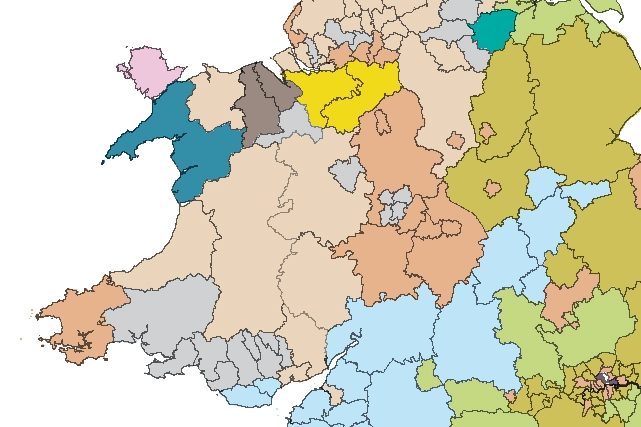
Map of BGS BritPits showing the distribution of worked mineral commodities across the country
18/02/2026
BGS’s data scientists have generated a summary map of the most commonly extracted mineral commodities by local authority area, demonstrating the diverse nature of British mineral resources.

Funding awarded to map the stocks and flows of technology metals in everyday electronic devices
12/02/2026
A new BGS project has been awarded Circular Electricals funding from Material Focus to investigate the use of technology metals in everyday electrical items.

New UK/Chile partnership prioritises sustainable practices around critical raw materials
09/02/2026
BGS and Chile’s Servicio Nacional de Geología y Minería have signed a bilateral scientific partnership to support research into critical raw materials and sustainable practices.
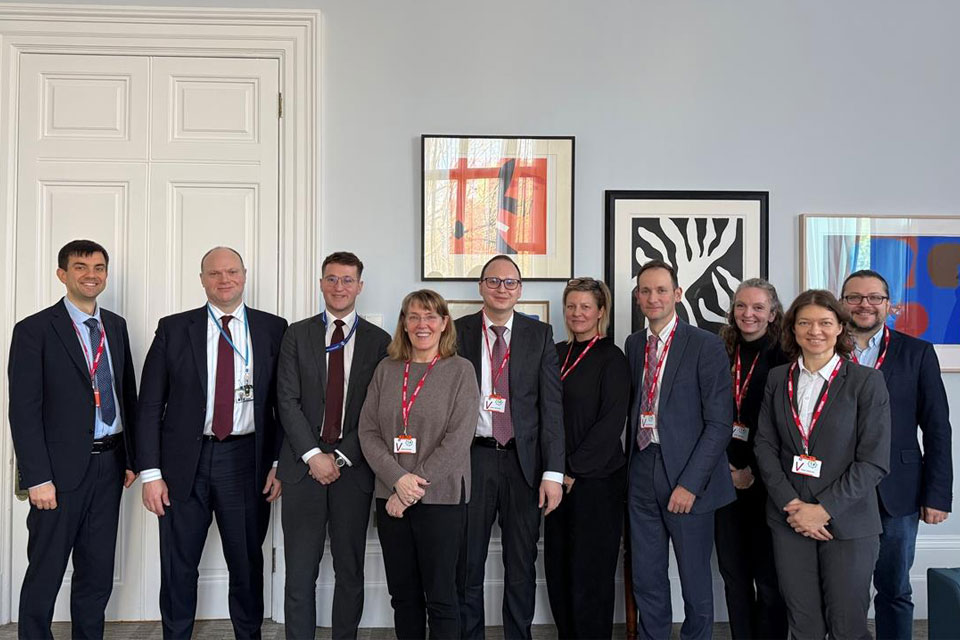
BGS agrees to establish collaboration framework with Ukrainian government
11/12/2025
The partnership will focus on joint research and data exchange opportunities with Ukrainian colleagues.
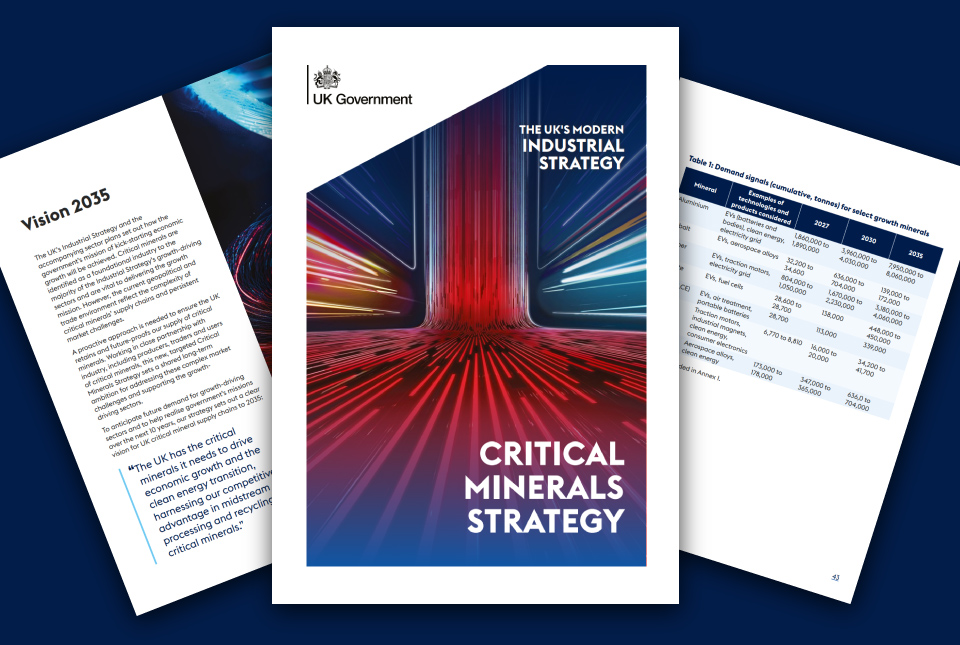
BGS welcomes publication of the UK Critical Minerals Strategy
23/11/2025
A clear strategic vision for the UK is crucial to secure the country’s long-term critical mineral supply chains and drive forward the Government’s economic growth agenda.

Dr Kathryn Goodenough appointed as honorary professor by the University of Aberdeen
25/08/2025
Dr Goodenough will take up the position within the School of Geosciences with a focus on critical minerals and the energy transition.
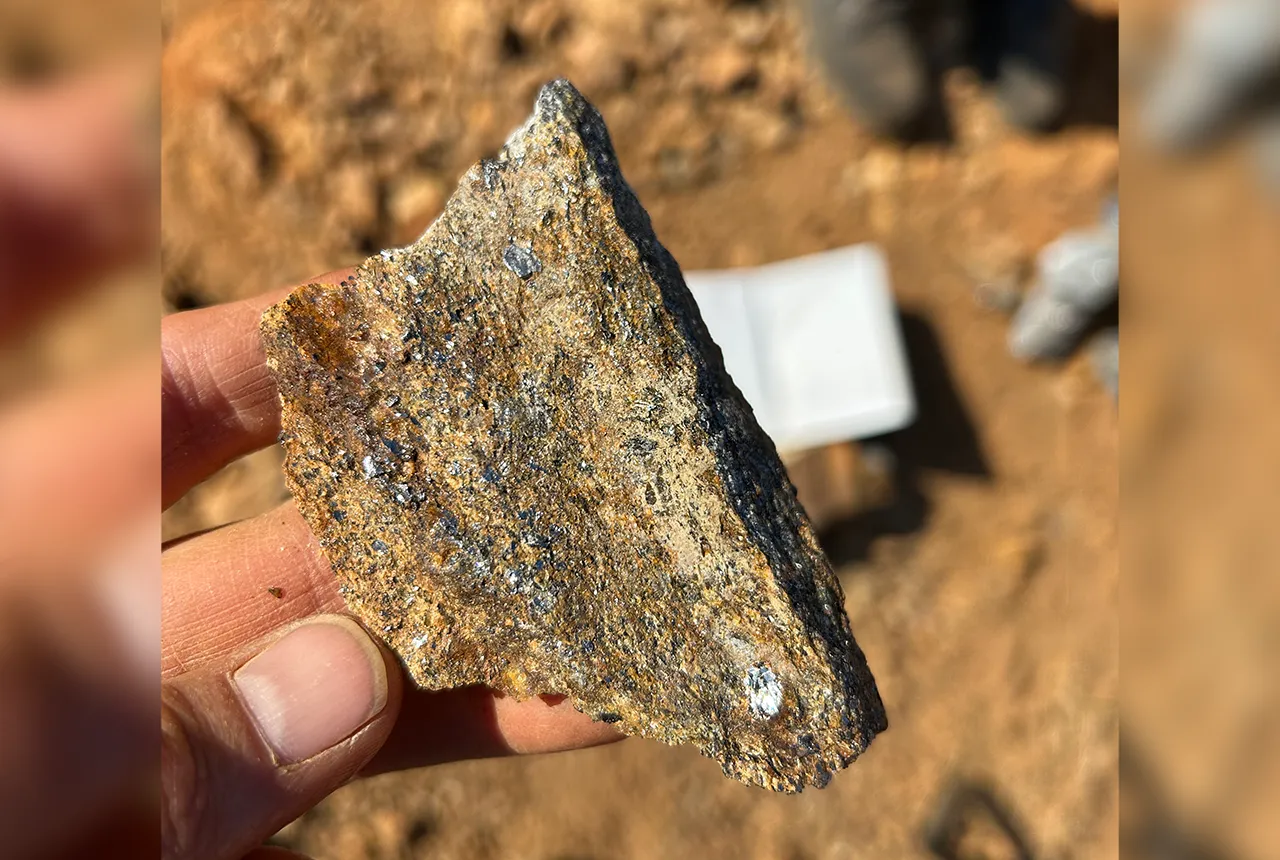
Zambia’s first critical minerals guide supports the country’s potential in global clean energy transition
18/07/2025
A new guide to Zambia’s critical minerals highlights the country’s current and potential critical mineral resources, including cobalt and lithium.
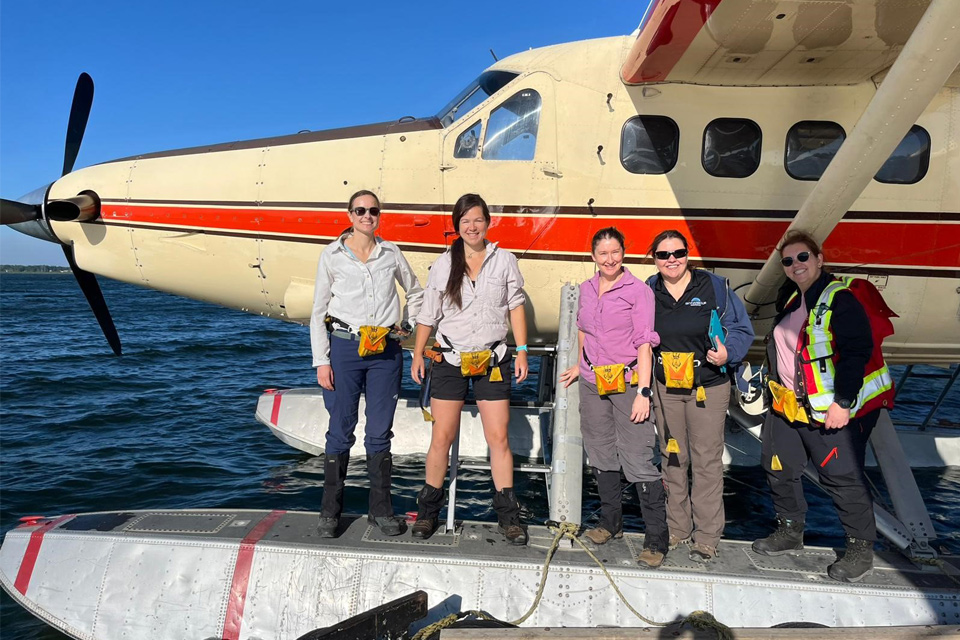
Funding awarded to UK/Canadian critical mineral research projects
08/07/2025
BGS is part of a groundbreaking science partnership aiming to improve critical minerals mining and supply chains.
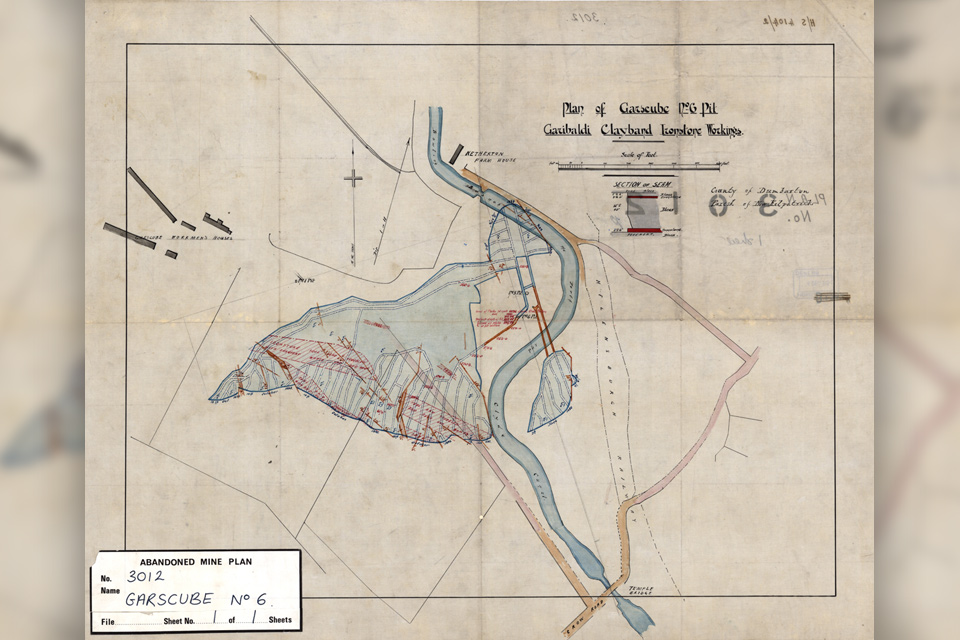
Release of over 500 Scottish abandoned-mine plans
24/06/2025
The historical plans cover non-coal mines that were abandoned pre-1980 and are available through BGS’s plans viewer.
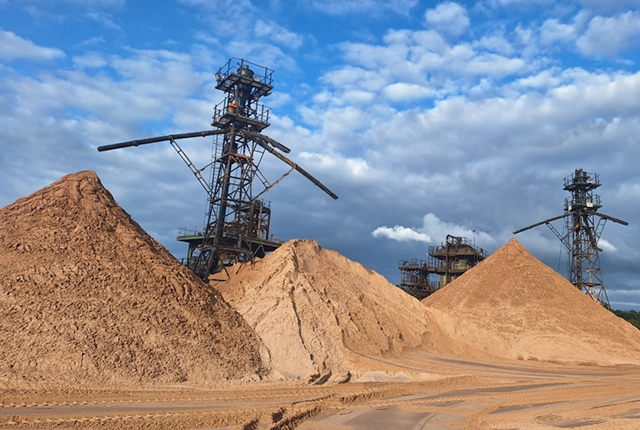
UK Minerals Yearbook 2024 released
21/05/2025
The annual publication provides essential information about the production, consumption and trade of UK minerals up to 2024.

New interactive map viewer reveals growing capacity and rare earth element content of UK wind farms
16/05/2025
BGS’s new tool highlights the development of wind energy installations over time, along with their magnet and rare earth content.
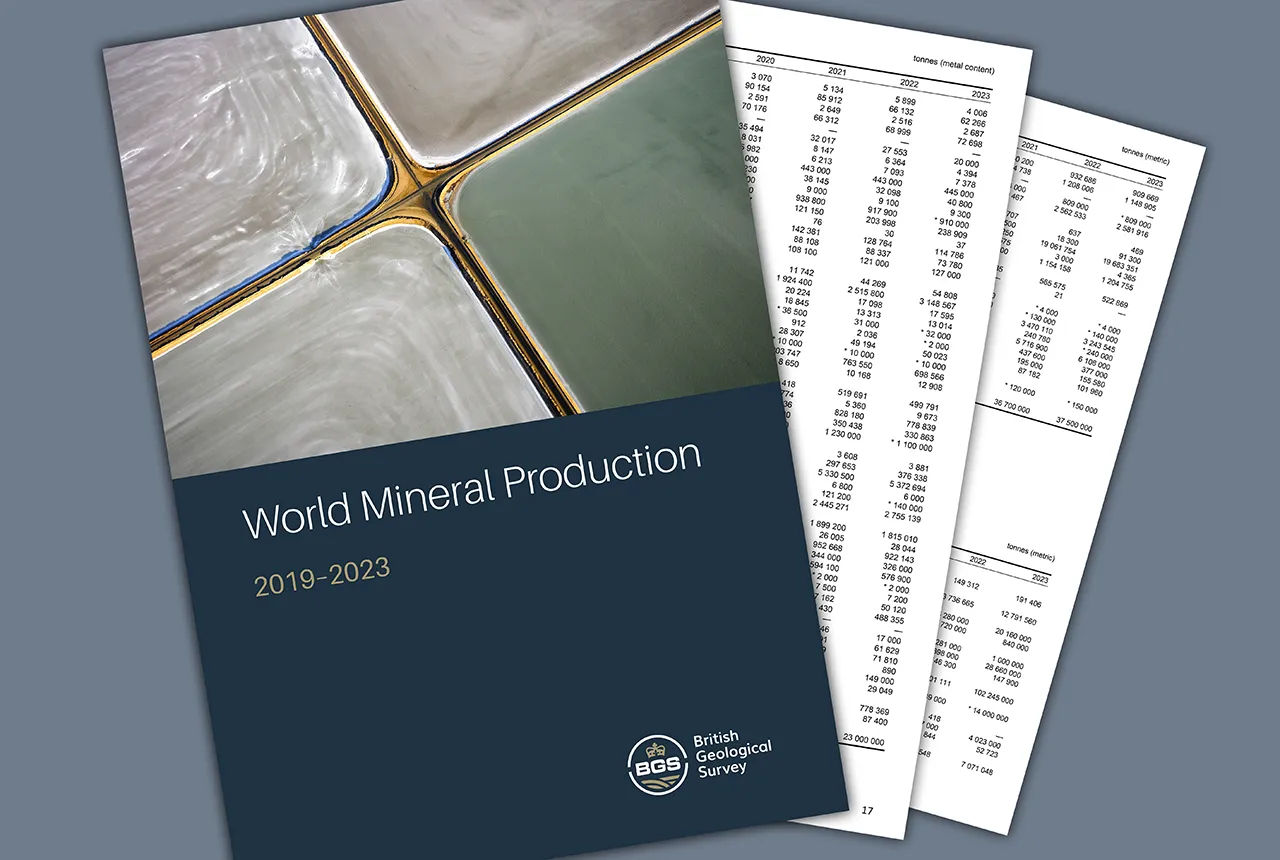
Latest mineral production statistics for 2019 to 2023 released
28/04/2025
More than 70 mineral commodities have been captured in the newly published volume of World Mineral Production.



